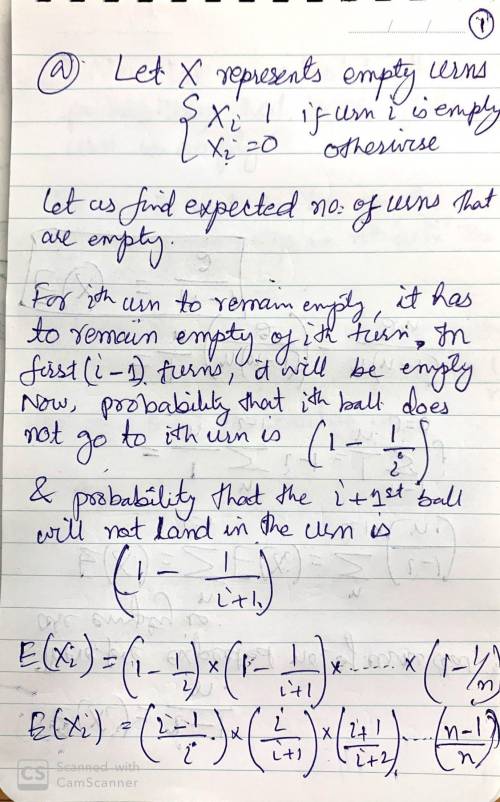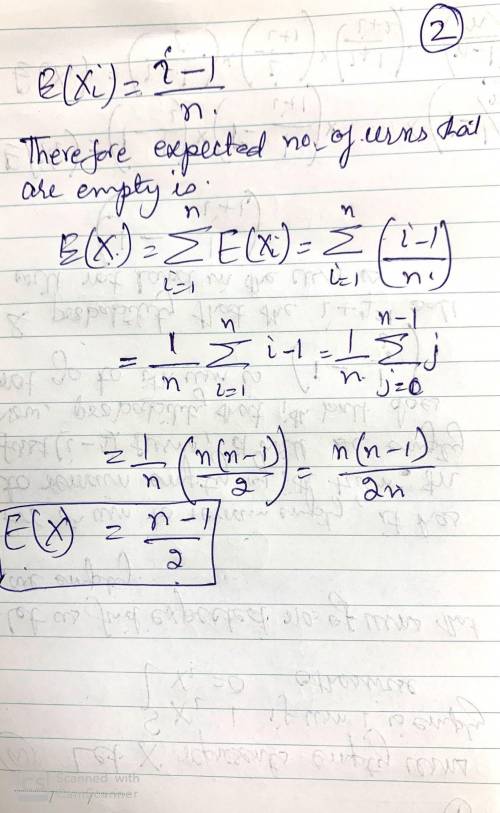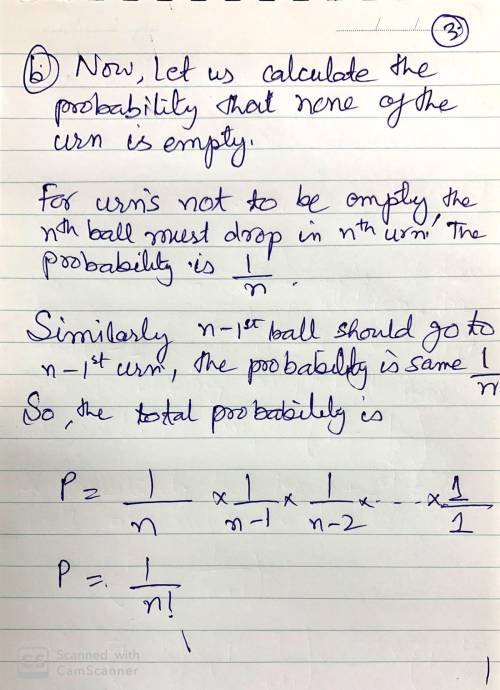
Mathematics, 07.03.2020 04:57 taylorclmna
A total of n balls, numbered 1 through n, are put into n urns, also numbered 1 through n in such a way that ball i is equally likely to go into any of the urns 1, 2, ..., i. Find (a) the expected number of urns that are empty; (b) the probability that none of the urns is empty.

Answers: 3


Other questions on the subject: Mathematics

Mathematics, 21.06.2019 16:40, cthompson1107
The table shows the total distance that myra runs over different time periods. which describes myra’s distance as time increases? increasing decreasing zero constant
Answers: 2

Mathematics, 21.06.2019 17:30, msdmdsm1186
Danielle earns a 7.25% commission on everything she sells at the electronics store where she works. she also earns a base salary of $750 per week. what were her sales last week if her total earnings for the week were $1,076.25?
Answers: 3

Mathematics, 21.06.2019 21:30, allisonboggs85
Two airplanes start at the same place and travel in opposite directions, one at 395 miles per hour and the other at 422 miles per hour. how many hours will it take for the planes to be 2451 miles apart?
Answers: 1
You know the right answer?
A total of n balls, numbered 1 through n, are put into n urns, also numbered 1 through n in such a w...
Questions in other subjects:

Biology, 06.11.2020 05:10




Chemistry, 06.11.2020 05:10

Mathematics, 06.11.2020 05:10

Mathematics, 06.11.2020 05:10


Mathematics, 06.11.2020 05:10

 (b)
(b) 






